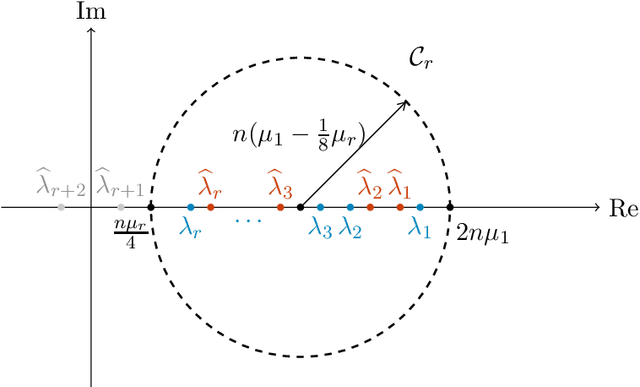The ESPRIT algorithm under high noise: Optimal error scaling and noisy super-resolution
Paper and Code
Apr 05, 2024
Subspace-based signal processing techniques, such as the Estimation of Signal Parameters via Rotational Invariant Techniques (ESPRIT) algorithm, are popular methods for spectral estimation. These algorithms can achieve the so-called super-resolution scaling under low noise conditions, surpassing the well-known Nyquist limit. However, the performance of these algorithms under high-noise conditions is not as well understood. Existing state-of-the-art analysis indicates that ESPRIT and related algorithms can be resilient even for signals where each observation is corrupted by statistically independent, mean-zero noise of size $\mathcal{O}(1)$, but these analyses only show that the error $\epsilon$ decays at a slow rate $\epsilon=\mathcal{\tilde{O}}(n^{-1/2})$ with respect to the cutoff frequency $n$. In this work, we prove that under certain assumptions of bias and high noise, the ESPRIT algorithm can attain a significantly improved error scaling $\epsilon = \mathcal{\tilde{O}}(n^{-3/2})$, exhibiting noisy super-resolution scaling beyond the Nyquist limit. We further establish a theoretical lower bound and show that this scaling is optimal. Our analysis introduces novel matrix perturbation results, which could be of independent interest.
 Add to Chrome
Add to Chrome Add to Firefox
Add to Firefox Add to Edge
Add to Edge